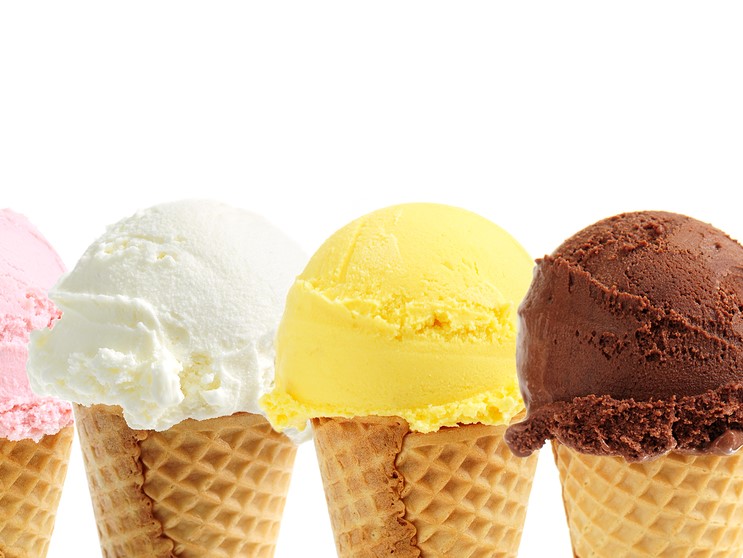
Treats, snacks and healthy options are the bread and butter for one Australian multi-brand franchisor which has international expansion and brand redevelopment on its plate.
One of the more unusual ideas to take flight at Trampoline Gelato, a food brand under the umbrella of Franchised Food Company in Melbourne, was to add alcohol to ice cream.
There was just one problem, as franchisor Stan Gordon points out: “Alcohol is an anti-freeze, so how can you add it to ice cream?”
Not to be deterred, the team started testing options and came up with an idea that gave the brand – and franchisees – a unique selling point. As a result, the ice cream will be launched in Bali this year. Nightclubs and restaurants are obvious distribution outlets for the concept, says Gordon.
Of course, the alcoholic ice creams, in a small range of flavours, can be sold only in stores with a liquor licence.
“We do Whisky, Strawberry Lime Cider, Espresso Martini (Kahlua) and Irish Cream (Baileys),” says Gordon. “As an example, the Whisky flavour contains 5 per cent alcohol and premium inclusions such as honey-roasted almonds.
“Will it work? Initial trials say yes.”
Franchised Food Company has been building its portfolio of brands to also include Cold Rock Ice Creamery, Europa Coffee Drive-Thru, Healthy Habits, Mr Whippy, Nut Shack and Pretzel World.
International growth
Gordon is seeking international growth this year with a Pretzel World outlet in Dubai as the first overseas store, to be followed by the Balinese opening for the Trampoline range.
“Why Dubai? The franchisee approached us, and I did exploratory trips,” he says. “Our target customer is the visitor and the international market in shopping centres.”
He has signed up a food-based group as franchisee, and is looking to open between 15 and 30 stores. “The franchisee has to have local knowledge within the industry: distribution, regulations, customer demand, locations. We’re happy to modify products for local taste.”
Base ingredients will come from Australia – Allied Mills’ flour mix for the pretzels, for instance – and the pretzels will be served with coffee and shakes.
Saudi Arabia may also be a destination this year for the Cold Rock custom ice-cream brand, which is heading to Gordon’s home country, South Africa. “We went to South Africa about three years ago to look at the market, but it wasn’t right. On a recent trip we found the right partner.”
Gordon plans to launch four or five stores for each of the Cold Rock, Pretzel World and Trampoline brands in South Africa this year to give the business “the appropriate initial scale”.
He says South Africa offers different demographics and different purchasing habits. At least 3 to 4 million of the population of more than 50 million people have high disposable income and are fairly sophisticated, which gives huge opportunity. He understands the South African market, having lived there for more than 35 years.
Next attraction
In Australia, “churn and mix” is the next big upcoming attraction, thanks to an Italian machine that works in view of the customer. The churns are being trialled initially at Cold Rock Malvern, in Victoria.
Franchised Food Company focusses on treat brands, and the ice-cream development continues with the launch of a Mr Whippy tuk-tuk, taking ice cream back to the streets. The concept also serves barista-made espresso coffee.
While the Pretzel World business is heading overseas, in Australia the snack business is challenged by a lack of good locations at reasonable cost, says Gordon. “There are unrealistic landlord expectations and, generally, small retailers won’t survive if they have to pay 40 to 50 per cent of turnover on occupancy costs.”
Add to this labour costs for up to four people, and the traditional footprint of a Pretzel World store becomes challenging. Gordon has addressed this with a kiosk format sporting an oven and a coffee machine – “a type of semi-permanent pop-up”.
More upmarket
Then there is Healthy Habits, a franchise chain with a Victorian heartland that struggled to find form under the Dymocks Group. “Founder Katharine Sampson took it from zero to stage one. Dymocks did what it could,” says Gordon, who is repositioning the brand as more upmarket and funky.
“Healthy Habits has tried to compete with Subway, which has its own market. This is about make your own.”
It will become a premium grab-and-go venue, mid to high end, with all menu items made fresh onsite daily. Salads, sandwiches, wraps, juices and smoothies will replace the carvery that features in some of the older stores.
The new-look stores have the same logo but recoloured, plus a refreshed design. The offer is based on UK retail success Pret A Manger, which translates to freshly made items and breads baked in store. A major yoghurt supplier has been signed up, and the store will offer yoghurt with healthy toppings such as nuts, seeds and fruits.
The goal is a modern, healthier menu. “We really understand this sector,” says Gordon. “Healthy for your mind and your soul.”
More staff
The transition will be gradual, with some fine-tuning expected after the first couple of stores are converted. Growth is anticipated to be 25 stores.
With all this activity in the pipeline and only about 20 people in the head office, Gordon is facing the need to expand his staff. “We will bring in more people as we need them. We want to do thing the right thing.”
Franchisees will have support from business development managers, who will be responsible for about 20 outlets each. “We’re not there to run the franchisees’ business, we’re there to guide them. Franchisees need to follow the suggestions.”
While Gordon juggles the development and expansion of these brands, he continues to have an appetite for great food options. “I still think there’s opportunity,” he says. “I’m always on the lookout. We do thinking well in Australia.”

